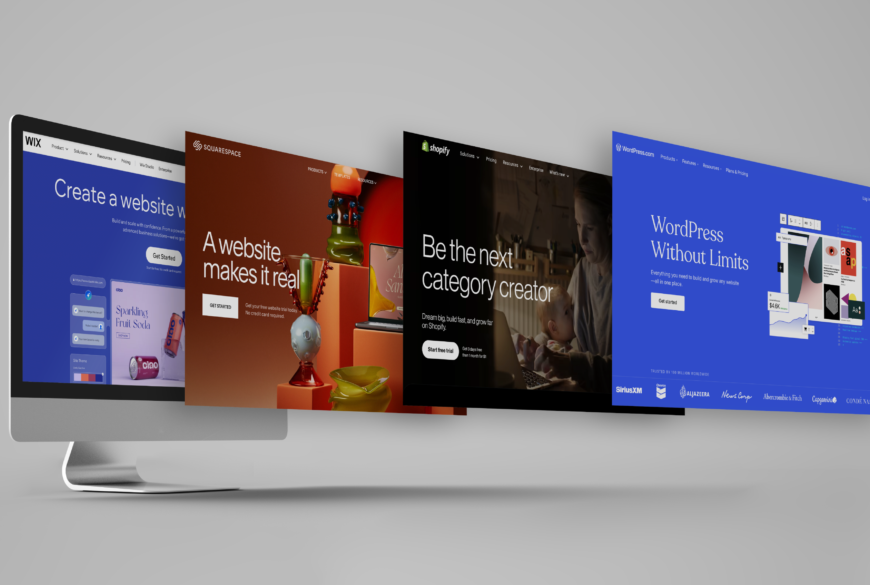In today’s digital age, blogging has become a powerful tool for individuals and businesses alike. Whether you’re a hobbyist looking to share your passion or an entrepreneur seeking to connect with an audience, finding the right blogging platform can make all the difference. If you’re searching for the best blogging sites, you’re in the right place. This guide will explore everything you need to know about blogging platforms, their features, and how to choose the best one to suit your needs.
Why Blogging Still Matters
Before diving into the specifics of blogging platforms, it’s essential to understand why blogging remains relevant in 2024. Blogging is no longer just about personal diaries or niche communities. It has evolved into a multi-purpose medium used for:
- Brand Building: Establish yourself or your business as an authority in your industry.
- SEO Benefits: Quality blog content helps boost your search engine rankings.
- Audience Engagement: Blogs allow for long-form content that connects with readers on a deeper level.
- Monetization: From affiliate marketing to sponsored posts, blogs can become a source of income.
Given these benefits, choosing the right blogging platform is a critical decision for anyone looking to enter the blogging world.
Key Factors to Consider When Choosing a Blogging Site
Not all blogging platforms are created equal. Here are some key factors to consider when selecting the best one:
- Ease of Use: Beginners should prioritize platforms with intuitive interfaces and minimal learning curves.
- Customization Options: If branding is a priority, choose a platform that allows you to customize your blog’s look and feel.
- Monetization Capabilities: Not all platforms support ads or affiliate links; ensure your chosen platform aligns with your monetization goals.
- SEO Tools: Built-in SEO features can give your blog a competitive edge.
- Pricing: From free platforms to premium subscriptions, understand what fits your budget.
- Community and Support: Platforms with active communities and robust customer support can help you troubleshoot issues quickly.
Top Blogging Sites to Consider
Here’s a breakdown of some of the best blogging platforms, highlighting their unique features and ideal use cases.
1. WordPress.org
WordPress.org is often referred to as the gold standard for blogging. It’s a self-hosted platform, meaning you’ll need to purchase your domain and hosting separately.
Key Features:
- Unmatched customization with thousands of themes and plugins.
- Full control over your website’s functionality.
- Ideal for bloggers looking to scale or build professional websites.
Best For: Advanced users, businesses, and serious bloggers.
Cons:
- Steeper learning curve.
- Requires ongoing maintenance, such as updates and backups.
2. Wix
Wix is a website builder that also doubles as a blogging platform. It’s perfect for beginners looking for an all-in-one solution.
Key Features:
- Drag-and-drop design functionality.
- Hundreds of pre-designed templates.
- Built-in SEO tools.
Best For: Beginners, small businesses, and casual bloggers.
Cons:
- Limited flexibility compared to WordPress.org.
- Premium plans can get expensive as your needs grow.
3. Blogger
Owned by Google, Blogger is a straightforward platform ideal for beginners or hobbyists.
Key Features:
- Free hosting with a *.blogspot.com domain.
- Seamless integration with Google tools like AdSense and Analytics.
- Simple interface for easy blogging.
Best For: Casual bloggers and those looking for a free option.
Cons:
- Limited customization options.
- Less modern compared to other platforms.
4. Medium
Medium focuses on content rather than customization, making it a great choice for writers who want their work to shine.
Key Features:
- Clean, minimalist design.
- Built-in audience via the Medium community.
- Monetization through the Medium Partner Program.
Best For: Writers, thought leaders, and bloggers focusing on storytelling.
Cons:
- Limited control over your blog’s appearance and branding.
- You don’t own the platform, meaning less control over content.
5. Squarespace
Squarespace is a sleek and sophisticated platform known for its stunning templates.
Key Features:
- Professional-grade designs.
- Integrated e-commerce features.
- Robust analytics tools.
Best For: Creative professionals, small business owners, and visual-centric bloggers.
Cons:
- Higher price point.
- Limited third-party integrations.
6. Ghost
Ghost is a modern platform designed for writers and content creators.
Key Features:
- Built-in subscription and membership options.
- Fast, lightweight design focused on content.
- SEO-friendly structure.
Best For: Journalists, content creators, and those looking to monetize via memberships.
Cons:
- Smaller community compared to WordPress.
- Requires technical knowledge for self-hosted options.
Comparing Free vs. Paid Blogging Sites
One major decision you’ll face is whether to opt for a free or paid blogging platform. Here’s a quick comparison to help you decide:
| Feature | Free Platforms | Paid Platforms |
|---|---|---|
| Cost | Free with limitations | Monthly or annual subscription required |
| Customization | Basic templates | Full customization options |
| Monetization | Restricted | Unrestricted |
| Control | Limited (content may be owned by platform) | Full ownership and control |
| SEO Benefits | Basic SEO tools | Advanced SEO tools |
Tips for Success on Any Blogging Platform
Regardless of the platform you choose, there are some universal tips that can help you succeed as a blogger:
- Define Your Niche: Focus on a specific topic or audience to stand out.
- Create Quality Content: Prioritize value over quantity to engage readers.
- Leverage SEO: Use keywords, meta descriptions, and backlinks to boost visibility.
- Promote Your Blog: Share your posts on social media and network with other bloggers.
- Stay Consistent: Build a regular posting schedule to keep your audience engaged.
The Future of Blogging
As technology evolves, blogging platforms are becoming more sophisticated. Features like AI-generated content, personalized user experiences, and integration with emerging social media platforms are shaping the future of blogging.
For instance:
- AI Tools: Platforms like WordPress now offer plugins for AI content suggestions and optimization.
- Mobile-first Design: With more users accessing blogs via mobile devices, responsive design is non-negotiable.
- Interactive Content: Blogging platforms are adding support for polls, quizzes, and video embedding to enhance user engagement.
Conclusion: Which Blogging Site Is Right for You?
Choosing the best blogging site depends on your goals, budget, and technical expertise. If you’re a beginner looking for simplicity, platforms like Wix or Blogger might be your best bet. On the other hand, if you’re aiming for full control and scalability, WordPress.org or Squarespace are excellent choices.
Ultimately, the key to successful blogging lies not just in the platform you choose but in the content you create and the value you provide to your audience. So, pick a platform that aligns with your needs, start crafting compelling stories, and watch your blogging journey take off!









